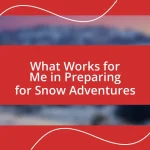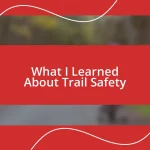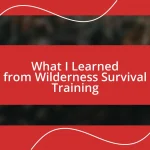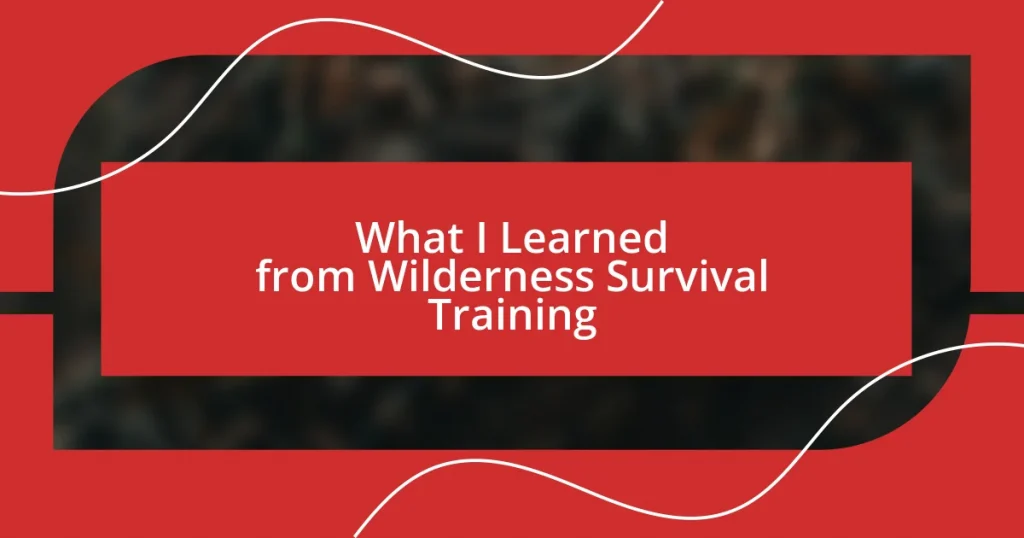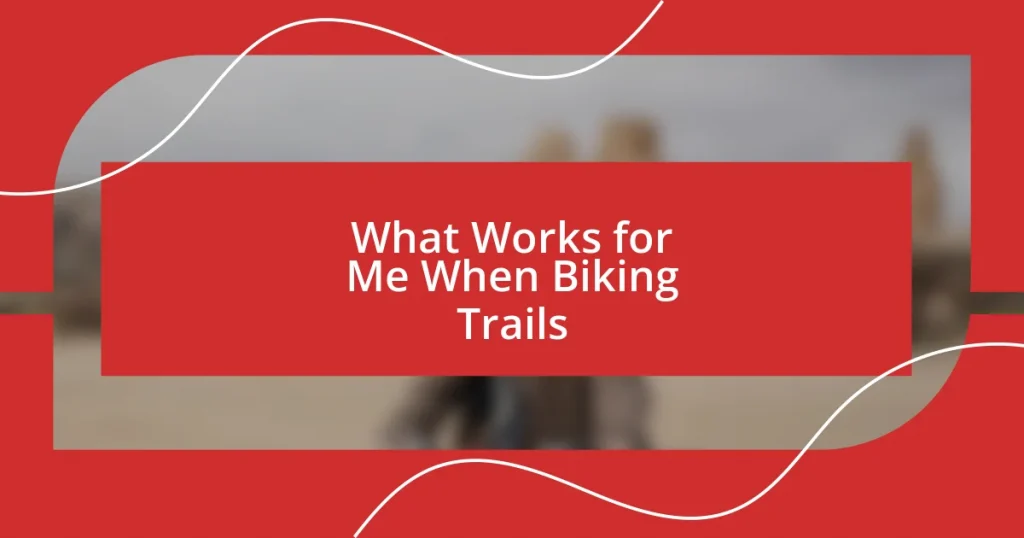Key takeaways:
- Wilderness survival training fosters both physical skills and psychological resilience, teaching essential skills like fire starting, shelter building, and navigation.
- Having the right gear significantly impacts survival success, including a quality sleeping bag, portable water filter, and a well-stocked first aid kit.
- Psychological resilience is vital in survival scenarios; teamwork and embracing discomfort contribute to navigating challenges effectively.
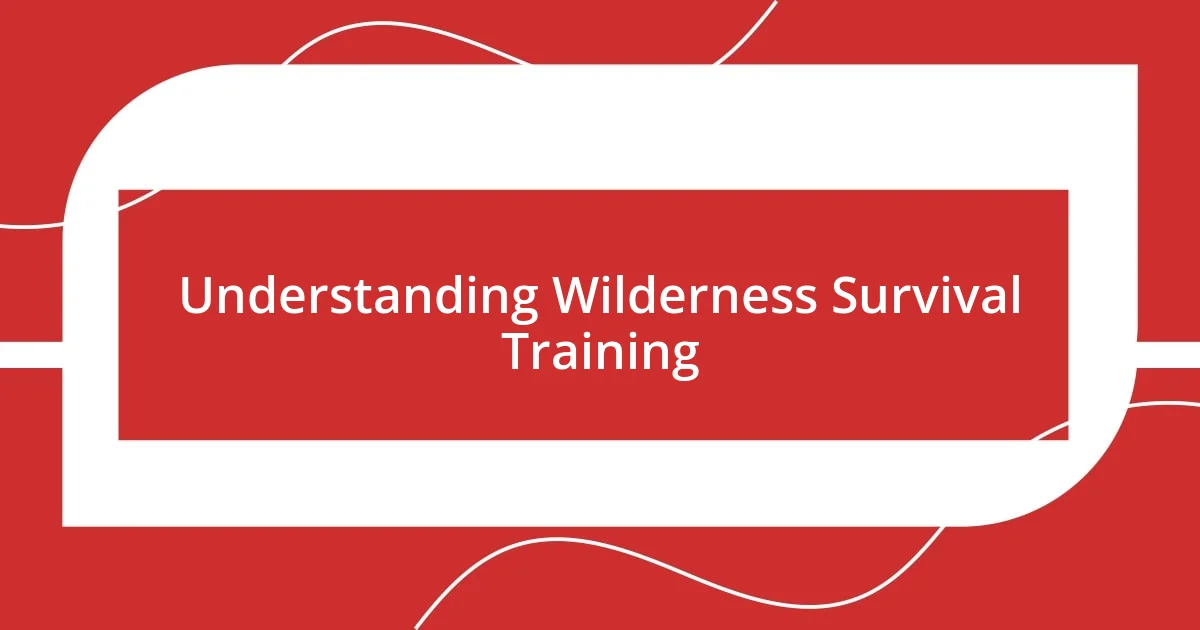
Understanding Wilderness Survival Training
Wilderness survival training is more than just a series of practical skills; it’s a mindset. During my own training, I found myself grappling with the sheer isolation of nature. Imagine facing the wild without the comforts of modern living—how would you react when your phone is out of service and your map is just a piece of paper?
I remember a particular night spent in the woods, shivering under the stars, realizing that understanding my surroundings is crucial for survival. We learned to identify edible plants and navigate using natural landmarks, which opened my eyes to the resources at hand. It made me question: what do we rely on in our daily lives that we often take for granted?
Ultimately, the experience is about connection—both with nature and ourselves. It’s not just about physical survival, but also emotional growth. Each challenge, whether it was starting a fire or building a shelter, forced me to confront my fears and limitations, and I now see each obstacle as an opportunity. What has wilderness survival taught you about resilience?
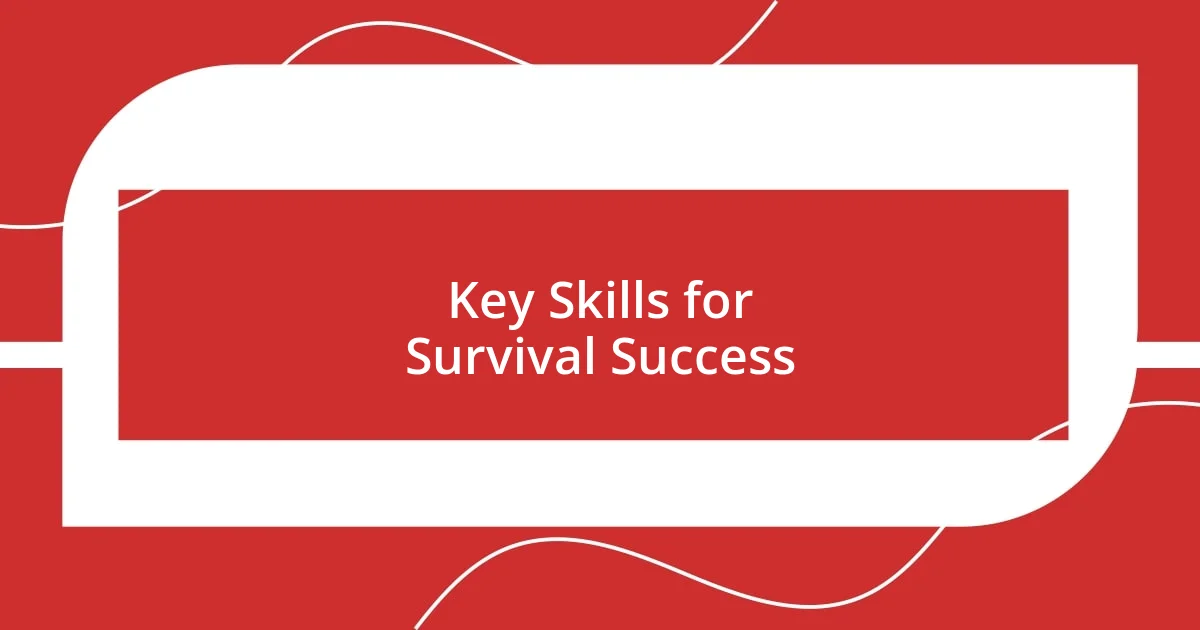
Key Skills for Survival Success
Survival success hinges on a core set of skills that I found invaluable during my training. Each skill serves as a thread in a complex tapestry; they work together to provide safety and security when faced with the unpredictability of nature. I recall one exercise where we had to purify water. I felt both apprehensive and empowered as I learned the different methods, from boiling to using filters, knowing that mastering this skill could mean the difference between life and death.
Here are some key skills that stood out to me:
- Fire Starting: Understanding how to create fire, not just for warmth but also for signaling and cooking.
- Shelter Building: Crafting temporary shelters from natural materials helped me realize the importance of protection against the elements.
- Foraging: Identifying edible plants provided a tangible connection to the environment; I was amazed at how many resources were often overlooked.
- Navigation: Learning to navigate without GPS forced me to rely on my instincts and the natural world around me—it’s invigorating to find your way with just the sun and stars.
- First Aid: Basic medical skills ensure that you’re prepared for injuries or emergencies, which can be incredibly grounding in high-stress situations.
Each of these skills created a sense of confidence within me, empowering me to confront fears and challenges head-on in the wilderness. I also cherished the team exercises where we had to rely on each other’s strengths. The lessons were not just about survival in the wild; they reflected the importance of community and collaboration in any challenging environment.
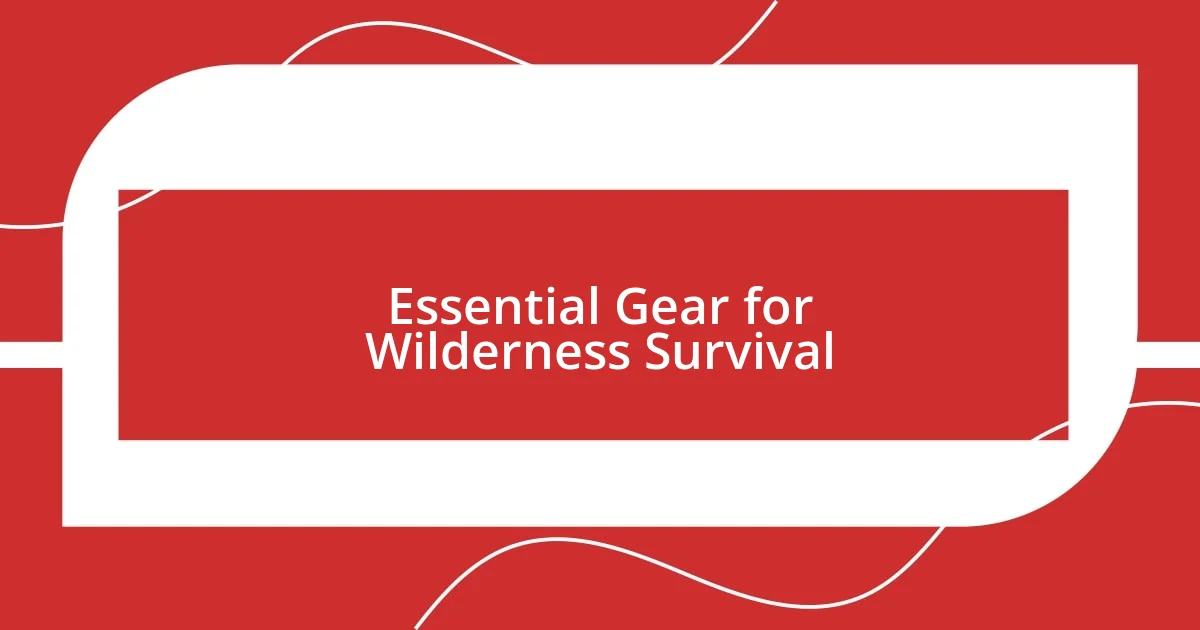
Essential Gear for Wilderness Survival
When it comes to wilderness survival, having the right gear can make a significant difference. I vividly remember my first survival exercises. Equipped with a basic kit that lacked essentials, I struggled to stay warm during a rainy night. That experience taught me the importance of choosing gear wisely. A quality sleeping bag, a reliable multitool, and a sturdy backpack are simply non-negotiable. Investing in these fundamentals provides not just protection but also peace of mind when venturing into the wild.
One standout item is a portable water filter. On one occasion, our group faced a dire situation when we ran out of water, and I realized the filter we had could purify any stream around us. That single piece of gear turned what could have been a panic into a moment of triumph. Additionally, a good fire starter is invaluable. The satisfaction of catching a spark and watching the flames flicker to life is exhilarating. It’s a reminder of the power and comfort that fire offers, not just for warmth but as a crucial survival tool.
Another critical component is the first aid kit. I’ve seen firsthand how an adequately stocked kit can prevent a minor scrape from turning into a major issue. When a fellow trainee twisted his ankle during a hike, our well-prepared first aid kit allowed us to provide immediate care, avoiding further complications. Being prepared gives you the confidence to face the unknown, transforming fear into readiness.
| Item | Importance |
|---|---|
| Quality Sleeping Bag | Essential for warmth and comfort |
| Portable Water Filter | Crucial for access to clean drinking water |
| Multitool | Provides versatility; can handle multiple tasks |
| Fire Starter | Critical for warmth, cooking, and signaling |
| First Aid Kit | Prevents minor injuries from escalating |
| Sturdy Backpack | Necessary for carrying gear efficiently |
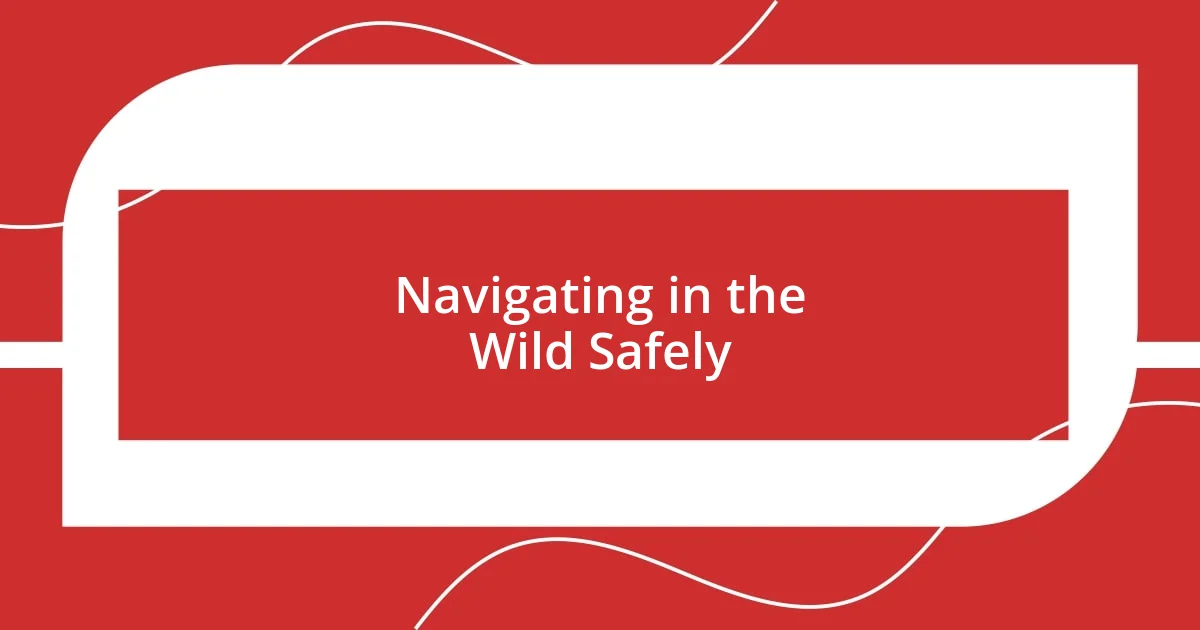
Navigating in the Wild Safely
Navigating in the wild requires a keen awareness of your surroundings. When I participated in a night navigation exercise, the absence of light forced me to rely solely on sound and feel. I still can recall the thrilling uncertainty mixed with a profound sense of connection to nature. It was challenging yet liberating; I learned to trust my instincts, allowing me to find my way solely by the stars.
It’s fascinating how natural landmarks become your compass in the absence of modern tools. One time, while trekking in a dense forest, I came across a distinctive rock formation that I had noted earlier. That rock wasn’t just a point of reference—it became a mental anchor. How many times have you overlooked the power of your environment in guiding you? Nature provides these markers; we just need to learn to recognize them.
Map reading, although it may seem daunting at first, turned out to be an empowering skill for me. I remember feeling overwhelmed looking at a topographic map, but as I practiced, things started to click. I realized it’s not just about knowing where you are; it’s about understanding where you want to go. Recognizing contour lines or elevation changes became intuitive, reinforcing the idea that with enough practice, anyone can master the art of navigation in the wilderness.
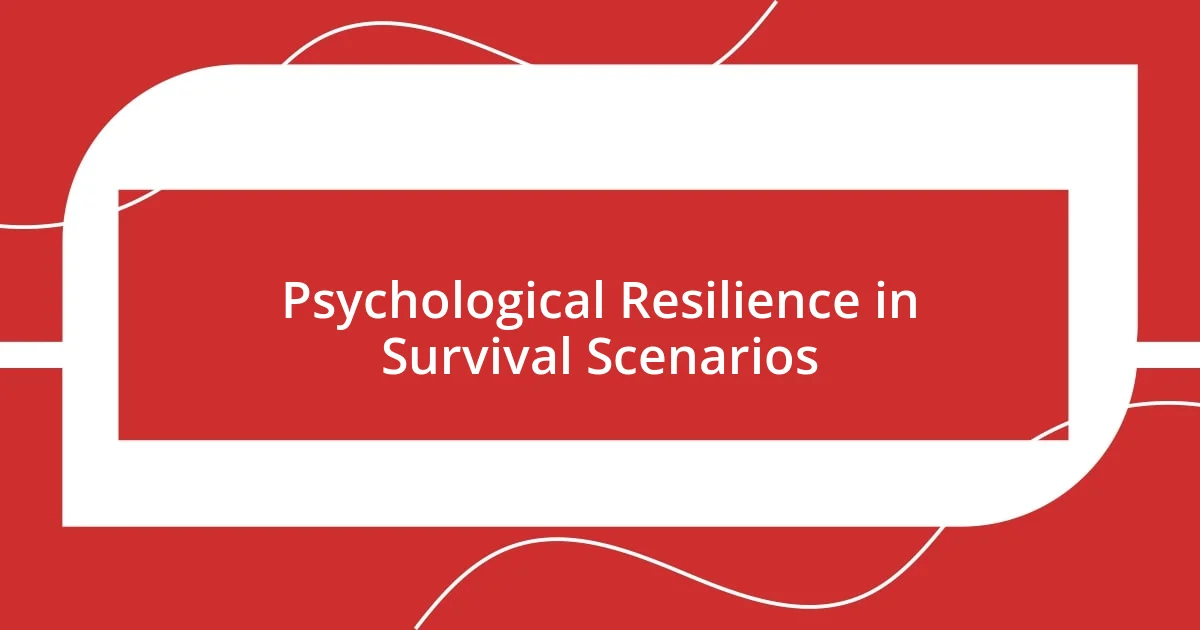
Psychological Resilience in Survival Scenarios
The mental aspect of survival often takes a backseat to physical survival skills, yet I believe psychological resilience is equally crucial. During my training, there was a moment when our group faced an unexpected storm. The weather turned harsh, and I felt the creeping sensation of panic. In that moment, I realized how important it was to stay calm and focused. Breathing techniques and positive self-talk became my anchors, guiding me through the chaos. How do you handle unexpected stress? I found that shifting my mindset can make a world of difference.
One of the most striking lessons I learned is how essential teamwork is for building psychological resilience in survival scenarios. When fear began to ripple through our group, I took it upon myself to share my experiences and strategies. I noticed that simply discussing our anxieties lightened the mood. It was fascinating to see how collective support can boost individual strength. Have you ever felt strengthened by others during tough times? For me, that shared sense of purpose became a protective barrier against the mental toll of our environment.
Moreover, embracing discomfort played a pivotal role in my journey to resilience. I vividly remember a night spent alone in the woods, surrounded by the sounds of nature and my own racing thoughts. It was daunting, but I learned to acknowledge my fears rather than flee from them. This mindset shift transformed discomfort into a feeling of empowerment. Aren’t our greatest growth moments often born from pushing our limits? By embracing those challenges, I discovered that resilience grows stronger with every experience, preparing me for any future obstacle.





